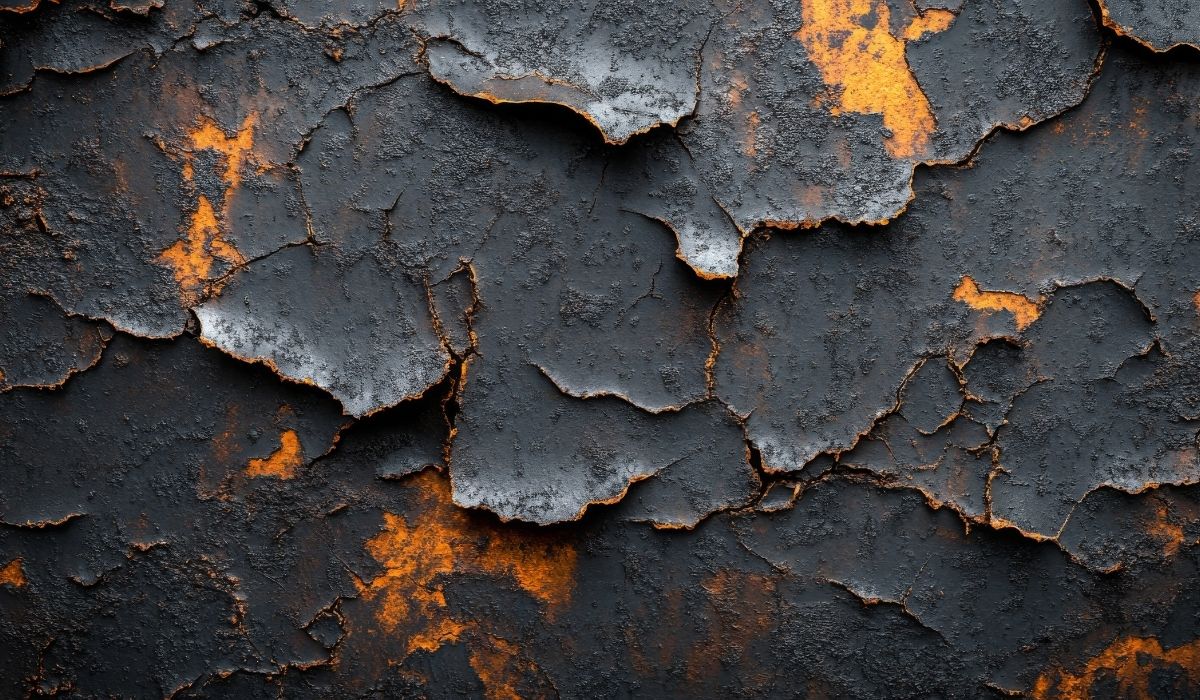Regular Plumbing Inspections: A Smart Way to Cut Costs
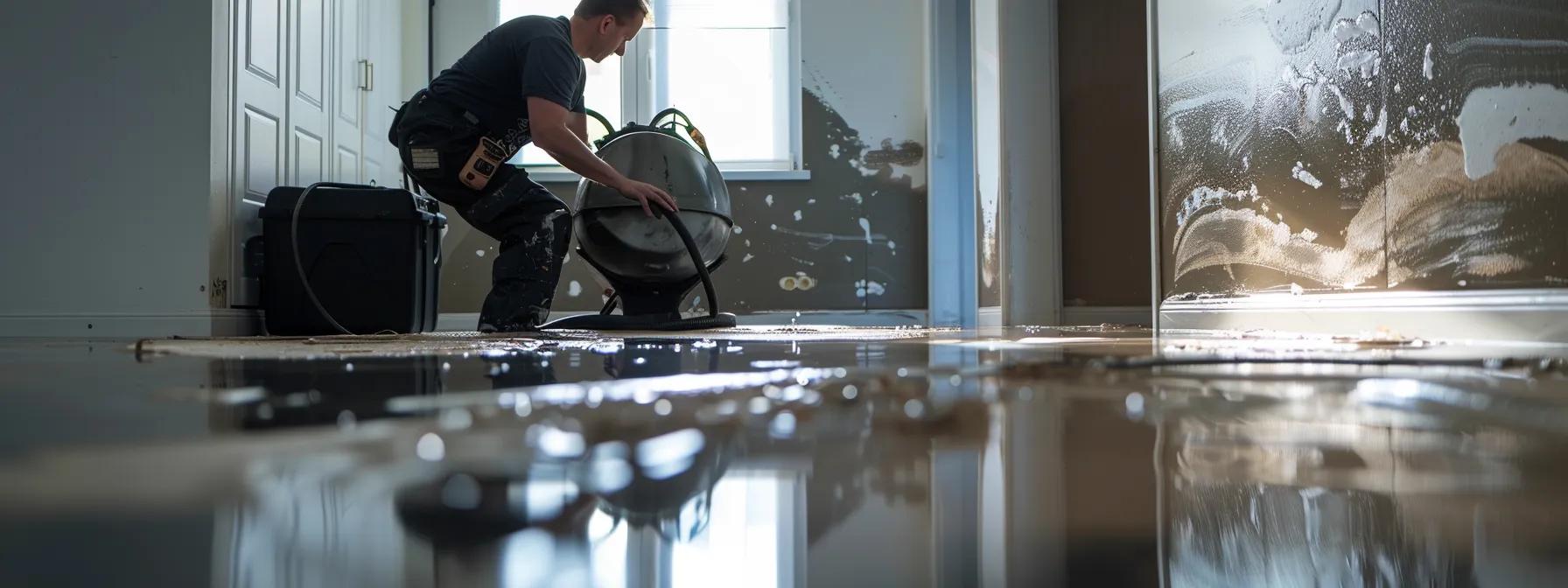
How Regular Plumbing Inspections Can Save You Thousands
Regular plumbing inspections are essential preventive maintenance measures that can help homeowners avoid unexpected water damage, costly emergency repairs, and premature replacement of plumbing fixtures. Poor water quality, hidden leaks, or undiagnosed deterioration in your pipes can lead to issues such as water hammer, corrosion from hard water, and even mold growth. These problems not only damage your property but can also increase your home insurance premiums and reduce the overall efficiency of systems like your water heater, washing machine, and air conditioning. In today’s climate of rising repair costs, timely plumbing evaluations are a smart investment that can save you thousands of dollars over time. Professional inspections use advanced moisture meters, thermal cameras, and leak detection technology to assess risks such as lead contamination, pipe insulation failures, and even issues related to sewer gas backups.
In addition to protecting the structural integrity of your home, routine plumbing checks help ensure that critical components—ranging from toilets and faucets to sump pumps and water softening systems—function optimally. Homeowners can benefit from expert advice on water conservation and energy savings while avoiding the potential emergency service costs arising from clogged drains, pipe bursts, or costly mold remediation. This article outlines several key benefits of regular plumbing inspections, detailing how minor issues can be identified and corrected before they turn into catastrophic failures. By implementing a detailed and scheduled evaluation plan, property owners can maintain system integrity, safeguard against water damage, and optimize their overall home repair budget. This approach not only ensures long-term reliability but also contributes to the sustainable management of your plumbing infrastructure. Let’s explore the financial and practical benefits of regular plumbing assessments.
Uncover Significant Savings With Routine Plumbing System Evaluations
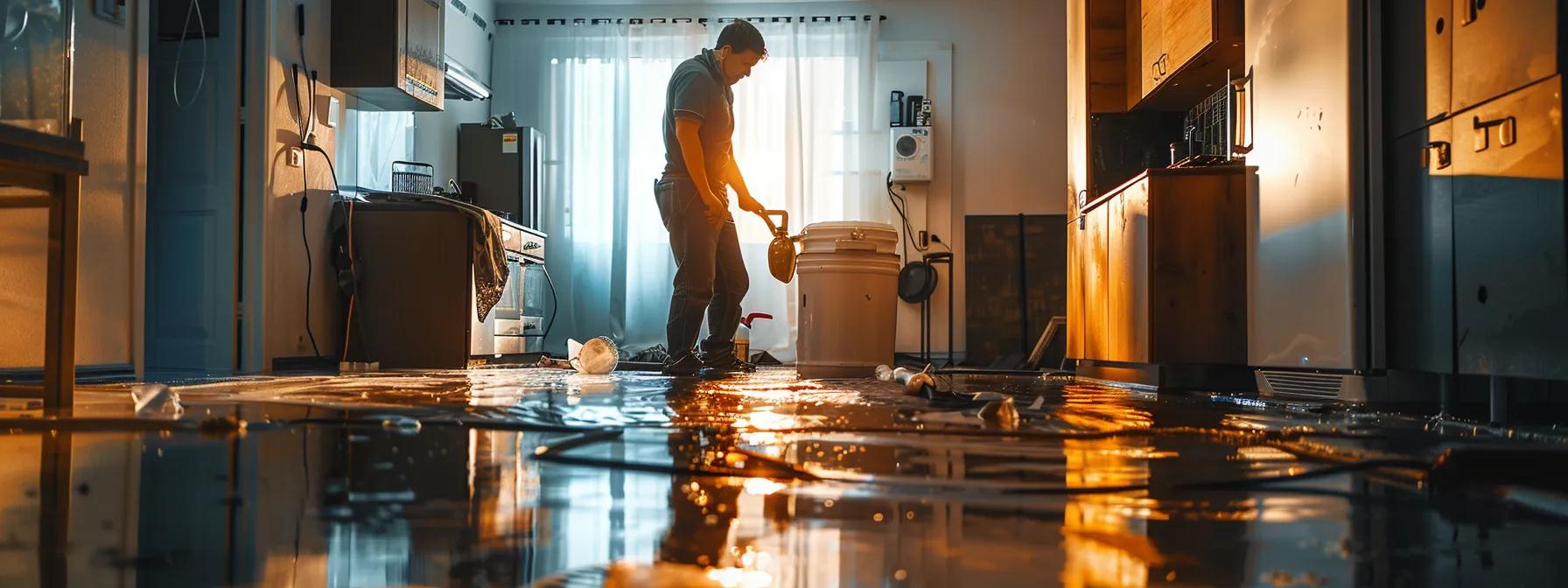
Routine plumbing system evaluations offer a comprehensive review of your home’s plumbing infrastructure, enabling homeowners to catch even minor issues before they become costly catastrophes. These evaluations involve the inspection of water supply lines, drainage systems, fixtures, and even checking for signs of water leaks using specialized tools such as moisture meters and thermal imaging cameras. By detecting early signs of corrosion, leaks, or deterioration, homeowners can address problems proactively rather than facing emergency repairs that might require expensive parts and professional labor. Detailed inspections allow the identification of common problems like faulty pipe insulation, which can lead to energy losses and increased water heater inefficiencies, or conditions that promote the growth of mold and mildew. This preventive approach is especially critical in regions prone to temperature fluctuations and severe weather, where freezing and thawing cycles can accelerate wear and tear on pipes.
Each inspection provides immediate benefits in terms of financial savings and risk mitigation. For instance, identifying even a small leak early on can reduce water waste significantly and prevent water hammer—a situation that not only creates disruptive sounds during water flow but can also damage pipes over time. Regular evaluations can also highlight inefficiencies in your current water filtration or treatment systems, ensuring that the water quality meets safety standards and reduces risks such as lead contamination. Additionally, a well-maintained plumbing system can improve indoor air quality by preventing the backflow of sewer gases, which might otherwise seep through seals around fixtures and compromise both health and comfort.
Identify Minor Issues Before They Become Costly Catastrophes
Minor issues such as small leaks, corrosion, or the buildup of sediment in pipes may seem insignificant at first, but over time they can lead to severe damage within your plumbing system. An expert inspector will utilize advanced diagnostic tools to detect microscopic cracks in metal pipes or subtle changes in water pressure that may indicate the beginning of a leak. These early detections are crucial because even a leak that only loses a few gallons per day can lead to significantly higher water bills over the course of a year. Furthermore, persistent leaks often cause water damage to surrounding structural materials such as drywall, ceilings, and flooring, contributing to mold growth and other indoor air quality issues.
Early identification also helps in preventing an escalation of wear and tear on mechanical systems like your water heater or washing machine, which rely heavily on consistent water pressure and quality. For example, detecting and replacing corroded segments of piping early can prolong the life of your water heater, which is critical given that replacing one can cost several thousand dollars. Moreover, by correcting issues before they worsen, homeowners can avoid the emergency service fees associated with urgent repairs. This proactive approach saves money not only by reducing water wastage but also by extending the lifespan of critical appliances and fixtures.
Reduce Water Bills by Detecting Hidden Water Leaks Early
Hidden water leaks are often a silent drain on your household budget, resulting in consistently high water bills that may go unnoticed until significant damage occurs. During a professional plumbing inspection, inspectors search for concealed leaks that may be occurring behind walls, under floors, or beneath ceilings. These inspections use state-of-the-art moisture meters and acoustic leak detection devices to pinpoint even elusive leaks that escape conventional detection methods by the naked eye. The economic value of stopping a hidden leak early extends beyond reducing water bills; it also prevents the potential cascade of consequences associated with prolonged exposure to water, such as mold growth, foundation damage, and structural weaknesses.
In many cases, homeowners may experience increased utility bills without realizing that a small, persistent leak is the root cause. By addressing these issues promptly, not only is water wastage minimized, but expensive repairs related to water damage can be avoided. Furthermore, many modern water meters are designed to track consumption accurately, making anomalies in water use readily apparent when compared against normal averages. This comparison can serve as an early warning system, prompting a professional evaluation. Over time, these savings accumulate and can provide a significant return on the relatively small investment in regular maintenance. Detecting hidden water leakage is therefore an essential step in achieving higher water efficiency and cost-effectiveness throughout your home.
Avoid Expensive Emergency Repair Callout Fees
Emergency plumbing repairs are typically associated with high costs, largely due to the immediate callout fees charged by professionals and the premium rates for after-hours or weekend services. Scheduling regular plumbing inspections helps to identify issues long before they require urgent attention. By addressing small leak problems or minor pipe degradation in a controlled environment, homeowners avoid the financial shock of emergency repairs that might necessitate extensive work in the midst of a crisis. These regular assessments offer a predictable home maintenance budget, ensuring that funds are allocated in advance for repairs rather than being spent reactively during emergencies.
Preventative maintenance also helps in reducing downtime and inconvenience, as emergency repairs often demand immediate and disruptive access to your home. By having a clear picture of your plumbing infrastructure’s condition, you benefit from timely repairs that are less invasive and can be scheduled at a time that is convenient, thus avoiding the stress and high costs that come with unexpected breakdowns. Additionally, early repairs maintain water conservation efforts and protect appliance longevity, which in turn add to the overall value of your home. The cumulative savings from avoiding emergency services can significantly offset the cost of routine checks, making these evaluations a financially sound decision.
Extend the Lifespan of Your Pipes and Fixtures
Regular maintenance and inspections play a significant role in extending the lifespan of your pipes and plumbing fixtures. Over time, scale buildup, sediment, and corrosion can weaken the integrity of your pipes, leading to leaks or even complete failure in severe cases. Through routine evaluations, early signs of deterioration can be identified and remedied before they compromise the entire system. Replacing a small section of a pipe or applying treatments to reduce corrosion can be far less expensive than a full-scale system replacement, thereby protecting you from major repair costs and the inconvenience of large-scale water shutdowns.
Moreover, regular maintenance not only enhances the durability of your plumbing but also helps maintain the performance of fixtures such as faucets, showers, water heaters, and even washing machines. For example, ensuring that water heaters are free from calcium deposits can improve their heating efficiency and reduce energy consumption. Similarly, addressing fixture leaks early prevents the unnecessary waste of water and contributes to more stable water pressure throughout the house. Over time, these small maintenance actions accumulate, resulting in a prolongation of the overall functionality and reliability of your plumbing network.
Lower Your Homeowners Insurance Premiums Potentially
Regular plumbing inspections can have an indirect, yet beneficial, impact on your homeowners insurance premiums. Insurance providers often consider the maintenance history of a property when setting premiums. A documented history of regular plumbing checks and prompt repairs demonstrates a proactive approach to home safety and can lower the perceived risk of water damage claims. This proactive maintenance record ensures that minor issues are not left unattended, which could eventually lead to severe damage such as flooding, mold growth, or structural compromises.
Insurance companies may offer discounts or lower rates for homeowners who can provide proof of routine inspections and maintenance. This benefit is particularly significant in areas where water damage is a frequent cause of claims, as it reassures insurers that potential issues are managed before they escalate to catastrophic levels. Furthermore, having a reliable plumbing system in place enhances overall property value and safety, both of which are factors that insurance underwriters consider when evaluating risk. Homeowners who invest in regular inspections are, therefore, not only preserving the functionality of their systems but may also enjoy financial savings through reduced insurance costs.
Key Takeaways: – Regular evaluations help catch minor issues early, reducing water waste and preventing costly emergencies. – Detecting hidden leaks with advanced tools significantly lowers water bills and avoids extensive water damage. – Proactive maintenance extends the lifespan of pipes and fixtures, improving system efficiency. – Routine inspections and documented repairs can potentially reduce homeowners insurance premiums.
Key Plumbing Inspection Benefits for Your Finances and Home
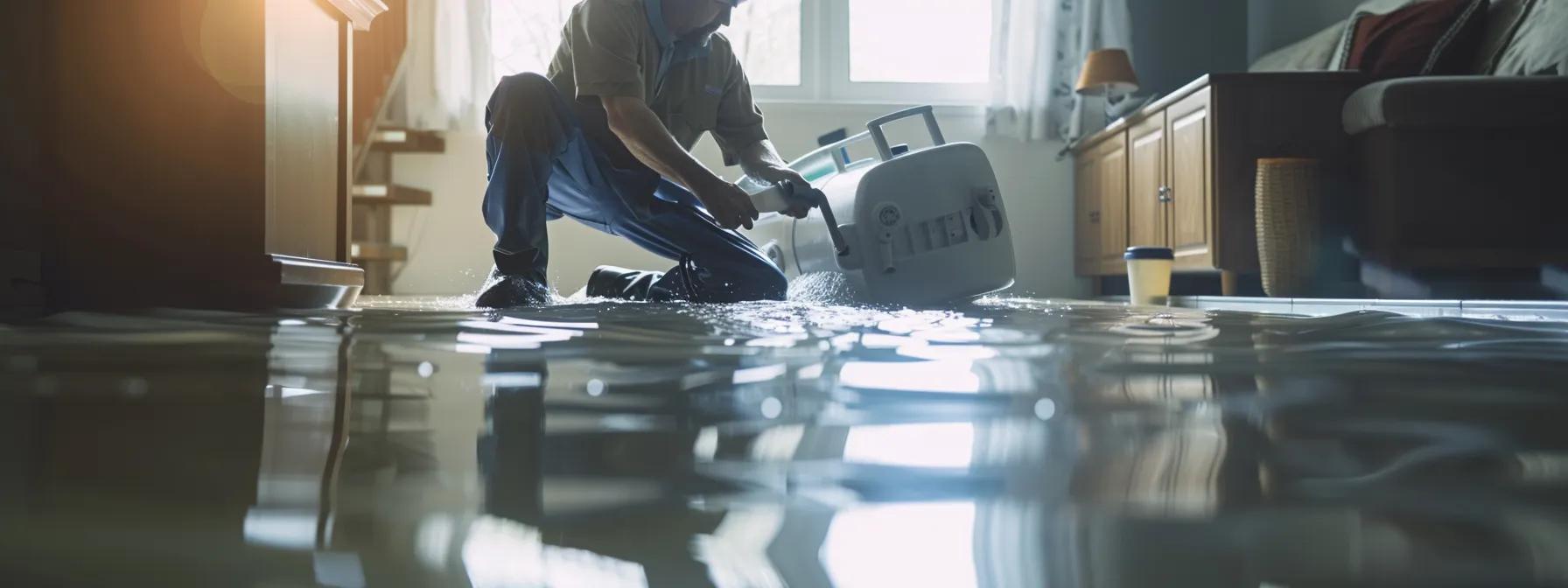
Plumbing inspections provide a multitude of benefits for both the integrity of your home and your financial stability. A professional plumbing inspection offers peace of mind by ensuring that your plumbing system is operating efficiently and safely. Inspectors can measure the water pressure and flow across your entire property, which not only highlights existing problems but also improves the overall performance of appliances like water heaters, washing machines, and dishwashers. A thorough evaluation can detect discrepancies in water pressure that may result from clogs or faulty valves, leading to reduced energy consumption and fewer mechanical repairs in the long run. Furthermore, these inspections play a crucial role in safeguarding your home’s structure from water intrusion damage that can compromise the foundation, walls, and ceilings.
The inspection process uses a variety of advanced diagnostic tools to assess potential points of failure, such as pressure regulators, backflow preventers, and even pipe insulation. This can reveal issues like hidden water leaks or areas of poor insulation that might cause freezing during colder months. In addition, these inspections generate a comprehensive report, which provides homeowners with professional advice on water conservation methods and any necessary upgrades to meet local building codes. This report can also be extremely beneficial when updating your home insurance policy or planning future home improvements.
Gain Peace of Mind Knowing Your System Is Sound
An essential benefit of a detailed plumbing inspection is the assurance it provides that every segment of your system is functioning as it should be. Homeowners are relieved when potential problems are spotted early, allowing preventive measures to be taken before an unexpected failure occurs. With modern diagnostic technology, an inspector can quickly identify areas where water pressure is inconsistent, or where deposits have started forming. This in turn minimizes the risk of water hammer—a phenomenon that not only causes noise and vibrations but can also lead to long-term damage. This peace of mind is invaluable, as it allows you to focus on other areas of home maintenance and improvement without the looming worry of an imminent plumbing disaster.
Improve Water Pressure and Flow Throughout Your Property
Regular plumbing system checks ensure optimal water flow and pressure in your home. When a blockage or leak is discovered early, correcting the issue can restore proper water pressure, which is essential for the efficient operation of your household appliances. Faulty water flow can lead to insufficient pressure in showers and faucets, reducing comfort and utility efficiency. By maintaining well-functioning pipes and valves, homeowners witness a tangible improvement in water distribution, which can also translate to energy savings when hot water systems work efficiently without unnecessary strain. Consistent water pressure also contributes to the longevity of appliances by ensuring they operate within optimal parameters, thereby protecting your investment in high-performance systems like dishwashers and washing machines.
Safeguard Your Home’s Structural Integrity From Water Damage
Water infiltrating the structure of your home can cause significant damage over time, affecting foundations, walls, floors, and ceilings. During a plumbing inspection, professionals meticulously check for any signs of water leakage, condensation, or pipe corrosion that might compromise the structural integrity of your property. Early detection is critical to thwarting issues like mold growth or termite infestations that often follow water damage. The strategic evaluation of vulnerable areas—such as basements and attics—allows homeowners to take immediate steps to repair deficiencies and apply protective measures like improved pipe insulation or better sealing around fixtures. Regular checks lessen the risk of severe damage that could otherwise lead to costly repair projects, while also helping maintain or even increase your home’s resale value.
Receive Professional Advice on Water Conservation Methods
A comprehensive plumbing inspection not only spots issues but also provides recommendations for improvements that promote water conservation. Inspectors can advise on the installation of low-flow fixtures, water-efficient appliances, or more effective agricultural irrigation systems. Their professional insight is especially beneficial in detecting inefficiencies that contribute to water wastage, such as outdated pipe materials that lead to leaks or suboptimal water pressure regulators. With the growing need for sustainable water management, homeowners can benefit from targeted strategies that reduce their overall consumption without sacrificing performance. Such measures not only lead to lower water bills but also contribute positively to environmental conservation efforts.
Maintain Compliance With Local Building Codes
Keeping your plumbing system up-to-date with local building codes is crucial, especially during renovations or when filing an insurance claim. Regular inspections help ensure that all installations adhere to current standards, thus reducing liability and enhancing long-term safety. This is particularly important in older homes where outdated systems may no longer meet modern regulatory requirements. A thorough inspection provides documentation of compliance which can be useful during property assessments, sales, or further improvements. Professional inspectors can also guide homeowners through the necessary upgrades to meet evolving standards, ensuring both safety and optimal performance.
Key Takeaways: – Plumbing inspections enhance system efficiency by ensuring proper water flow and pressure. – Early detection of structural or water damage helps preserve your home’s integrity. – Professional advice during inspections contributes to effective water conservation. – Regular compliance checks support adherence to local building codes and improve home value.
Effectively Save Money With Plumbing Checks on a Regular Basis
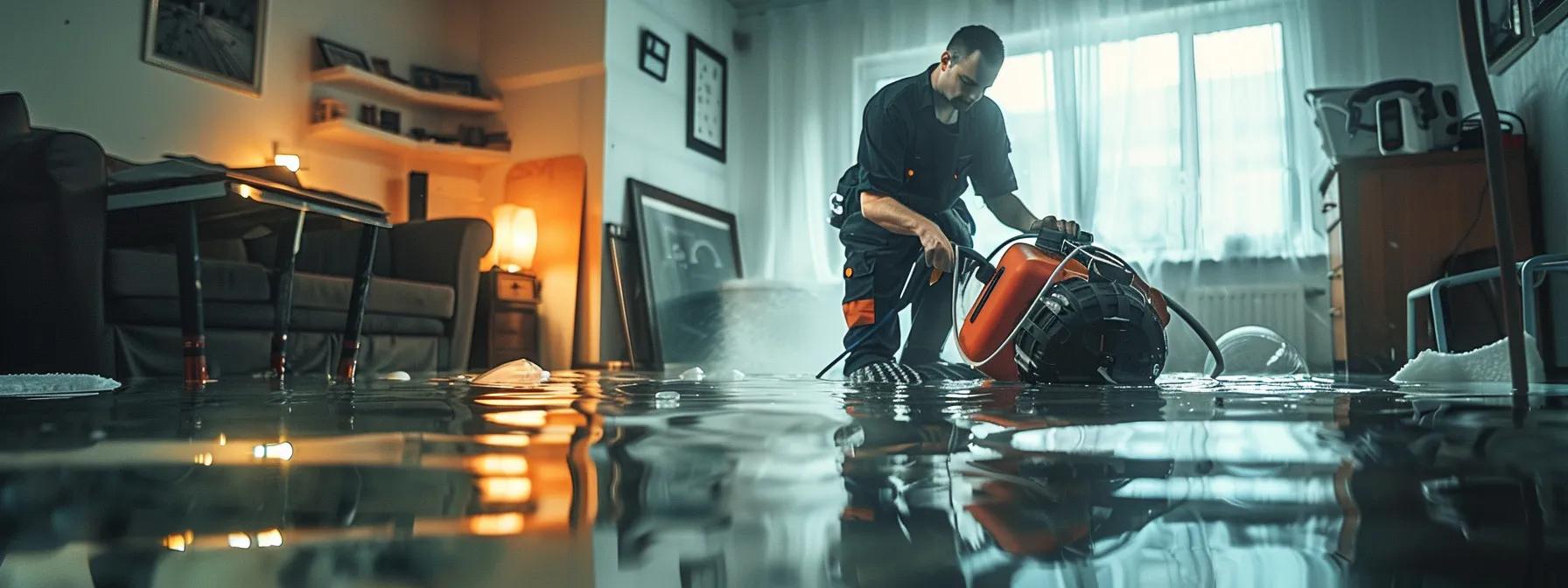
Consistent plumbing checks are a highly effective strategy to save money by mitigating large repair costs and preventing water damage. Scheduling routine inspections means that potential issues—ranging from corroding pipes to appliance inefficiencies—are detected well before they evolve into emergency situations. This proactive maintenance allows homeowners to budget for repairs rather than being blindsided by unexpected expenses. For example, a small leak that is caught early can be fixed quickly and economically, rather than developing into a major flood that damages walls, floors, and even the foundation of a property. Moreover, regular checks help ensure that various connected appliances, such as water heaters and washing machines, operate efficiently. When these systems function optimally, energy consumption is reduced, leading directly to lower utility bills.
Routine inspections promote predictable maintenance budgeting for homeowners. Instead of allocating a large sum for emergency repairs unexpectedly, you can plan repair expenditures over time. This financial predictability is particularly valuable in maintaining cash flow and avoiding the stress associated with urgent service calls. Additionally, regular maintenance improves the overall efficiency of the plumbing system. By addressing sedimentation and corrosion issues early, you prevent performance degradation in critical components. A comprehensive plumbing check covers multiple areas, including pipe corrosion, water heater performance, and the condition of home appliances that rely on water pressure.
Prevent Costly Water Damage to Walls Floors and Foundations
Unattended water leaks can lead to severe water damage in walls, floors, and even the foundation of the home. A leak, if left untreated, can weaken structural conditions, leading to deterioration that may necessitate complex and expensive repairs. Regular inspections help identify these insidious issues early. By detecting even a minor leak, homeowners can prevent water from seeping into structural components, thereby preserving the integrity of the building materials. For instance, a slow leak behind a wall can create moist conditions that lead to mold growth, a condition that significantly reduces indoor air quality and demands costly remediation efforts. With routine checks, such scenarios are avoided, resulting in long-term savings on repair costs.
Optimize Water Heater Performance for Energy Savings
A water heater in good condition is key to maintaining efficient energy use within the home. Neglected maintenance can lead to sediment buildup and corrosion within the heater, which diminishes its efficiency and increases energy consumption. Regular inspections ensure that the water heater is cleaned, flushed, and operating within the optimal temperature range. This not only extends the lifespan of the unit but also improves its energy efficiency, reducing electricity or gas bills. Some studies have shown that maintenance can improve water heater efficiency by up to 15%, saving considerable amounts in energy costs over the life of the appliance. Ensuring optimal performance also reduces the risk of sudden breakdowns that require emergency service calls and costly replacements.
Catch Corroding Pipes Before They Burst
Detecting corrosion in pipes early is a critical component of any plumbing check. When pipes begin to corrode, their structural integrity is compromised, making them more susceptible to bursting. A pipe burst can lead to severe water damage inside the home, necessitating not only plumbing emergency repairs but also extensive remediation for water damage. Routine inspections help to capture signs of corrosion, rust buildup, and pipe wear in time for a simple repair or replacement. This proactive approach prevents more extensive damage and the unexpected costs associated with water damage restoration. Using modern inspection tools, professionals can identify even minor signs of deterioration, enabling preventative measures that extend the overall durability of your plumbing network.
Keep Drains Clear to Avoid Backup Damage and Repair Costs
Clogged drains are another frequent source of serious plumbing problems, leading to backups that can damage fixtures and cause water to spill over into areas that are difficult and expensive to clean. Regular plumbing checks involve examining the condition of drain lines and identifying blockages before they escalate to a point where they disrupt the entire system. Homeowners are advised to monitor for early signs of clogged drains, such as slower drainage rates or unusual gurgling noises, which indicate the need for professional cleaning. A comprehensive inspection often includes the use of plumbing cameras that can detect obstructions, buildup, or even root intrusions that compromise the drainage system. By maintaining clear drains, you eliminate the risk of water backup and the consequent repair costs that can be substantial.
Budget Predictably for Plumbing Maintenance Not Unexpected Disasters
A key advantage of conducting regular plumbing checks is that they allow homeowners to establish a predictable maintenance budget. Instead of facing sporadic, expensive emergency repairs—which can disrupt financial planning—regular inspections enable a planned, cyclical approach to maintenance. This preventative strategy ensures that routine repairs and small interventions are managed with moderate costs, significantly reducing the chance of catastrophic failures that demand immediate attention. The cumulative effect of such strategic budgeting is an overall reduction in long-term costs, ultimately freeing up funds for other essential home improvements. By taking a proactive stance on maintenance, homeowners can see substantial savings in both repair costs and potential increases in their water bills due to inefficiencies.
Key Takeaways: – Regular plumbing checks prevent water damage to structural components, lowering long-term repair costs. – Optimizing appliance performance through routine maintenance results in noticeable energy savings. – Early detection of corrosion and drainage issues reduces the risk of costly emergency breakdowns. – Proactive budgeting for maintenance leads to predictable expenses and financial stability.
Proactively Prevent Plumbing Leaks and Associated Expenses
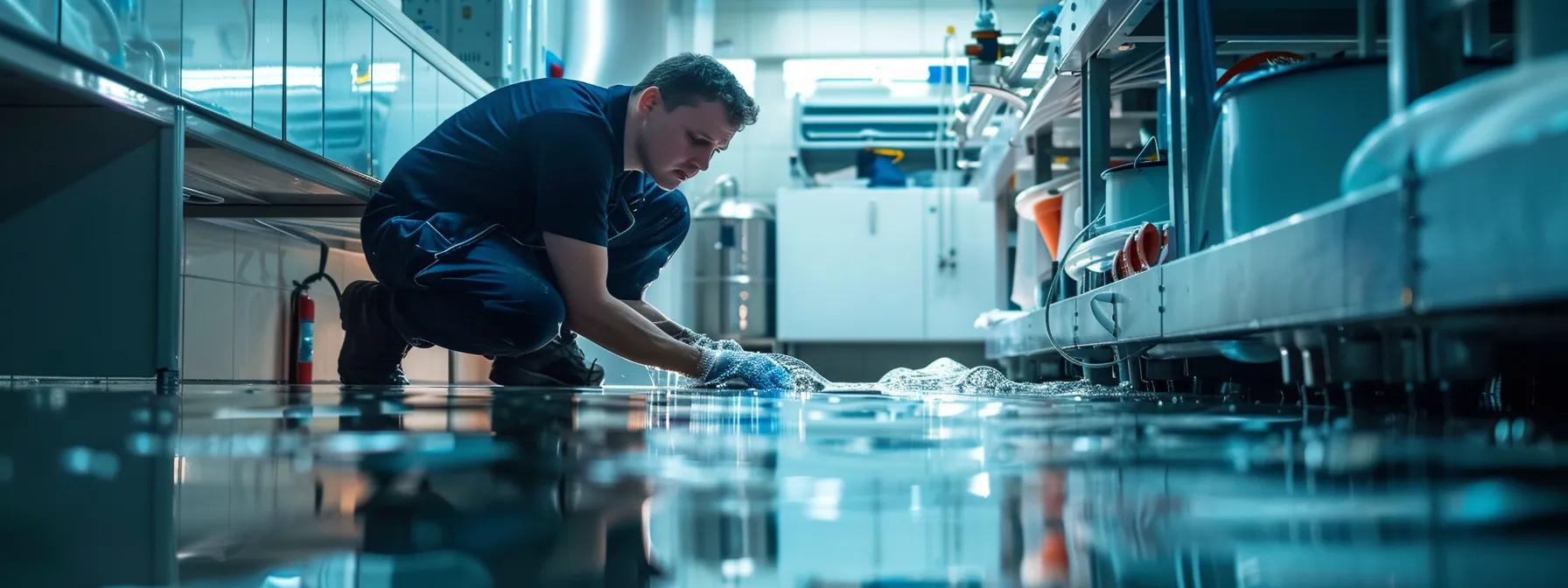
Preventing plumbing leaks is essential not only to conserve water but also to avoid the substantial repair costs that arise from long-term water damage. Proactive prevention involves regular monitoring of your entire plumbing system to catch potential leaks before they escalate. Inspectors use high-tech tools to observe early warning signs such as discoloration, moisture, or abnormal water pressure fluctuations—each of which could indicate a developing leak. Being vigilant in checking the condition of pipes, toilet seals, and appliance hoses plays a significant role in maintaining overall system efficiency and reducing unnecessary expenses. By ensuring that every component is in good condition, homeowners can mitigate risks like water hammer or lead contamination and reduce energy consumption linked with inactive or inefficient systems.
Spot Early Warning Signs of Pipe Deterioration
Regular inspections can reveal small cracks or areas of corrosion that indicate a decline in pipe integrity. Signs such as slight dampness on walls, an unusual drop in water pressure, or even audible dripping sounds may be early indicators of pipe deterioration. Detecting these issues at an early stage means that repairs can be conducted promptly, avoiding the severe consequences of pipe bursts or significant water leaks. With state-of-the-art diagnostic tools, professionals can identify hidden issues even behind walls or under floors, thus preventing water seepage into structural components. Attention to these early warning signs not only extends the lifespan of your plumbing but also minimizes the overall cost of repairs. By addressing these minor issues immediately, homeowners protect both their property and their wallet.
Address Toilet Leaks That Silently Waste Gallons
Often unnoticed, toilet leaks contribute a significant amount of wasted water and can lead to a steep increase in water bills. These leaks are typically subtle and occur due to worn-out flappers, faulty flush valves, or improper sealing around the base of the toilet. Regular plumbing inspections include a thorough test of all bathroom fixtures to determine whether any water is being lost despite the toilet appearing to be flushed properly. Once detected, these leaks can be repaired quickly, often by replacing a simple component or tightening a connection. Preventing toilet leaks not only conserves water but also prevents potential water damage to bathroom floors and adjacent areas. This simple preventive measure adds up to substantial savings over time and contributes positively to overall water conservation efforts.
Check Appliance Hoses for Wear and Tear
Appliance hoses connected to dishwashers, washing machines, and refrigerators are particularly vulnerable to wear and tear. These hoses are often made of plastic or rubber that degrades over time due to constant exposure to water, high temperatures, and varying pressures. Routine inspections target these hoses to detect any signs of bulging, cracks, or fraying before they develop into full-blown leaks. Replacing a damaged hose is relatively inexpensive compared to the extensive water damage that a burst hose might cause. In addition to preventing leaks, maintaining appliance hoses also ensures that the connected appliances operate efficiently, preserving their longevity and reducing energy consumption. By incorporating periodic hose checks into your maintenance routine, you safeguard your home from unexpected water damage and the subsequent repair costs, which can be both financially and emotionally draining.
Inspect Sump Pump Operation to Avert Basement Flooding
A sump pump is determined to be one of the most critical components in preventing basement flooding in homes situated in areas with high water tables or frequent heavy rains. Regular inspections should include a test of the sump pump’s functionality and an assessment of its operational efficiency. The pump’s battery backup, float switches, and discharge lines are scrutinized to ensure they are free from blockages and wear. Early detection of any malfunction can prevent a complete system failure, which would otherwise result in costly water damage and mold problems in the basement. Ensuring that the sump pump operates optimally is a proactive measure that protects the most vulnerable parts of your home while providing peace of mind, particularly during the stormy seasons.
Confirm Proper Sealing Around Fixtures and Faucets
Leaks sometimes occur where plumbing fixtures interface with stationary structures, such as around sinks, showers, and bathtubs. These leaks are often induced by degraded or improperly applied sealant, such as silicone caulk. Regular evaluations of these sealant lines are crucial for preventing water seepage that could damage adjacent walls and cabinetry. Inspections verify that all fixtures are securely fitted and that there are no gaps where water might escape. Professional plumbers recommend reapplying sealant at regular intervals to maintain a watertight barrier and protect your home’s structural elements. Additionally, properly sealed fixtures can enhance the overall efficiency and performance of your plumbing system, ensuring durable and long-lasting protection against water damage.
Key Takeaways: – Early detection of pipe deterioration leads to timely repairs and avoids severe water damage. – Routine checks on toilets, appliance hoses, and sump pumps prevent unexpected and costly leaks. – Ensuring proper sealing around fixtures maintains system integrity and prevents water seepage. – Proactive preventive measures result in significant long-term savings by avoiding emergency repairs.
How Diligent Plumbing System Checks Preserve Appliance Longevity
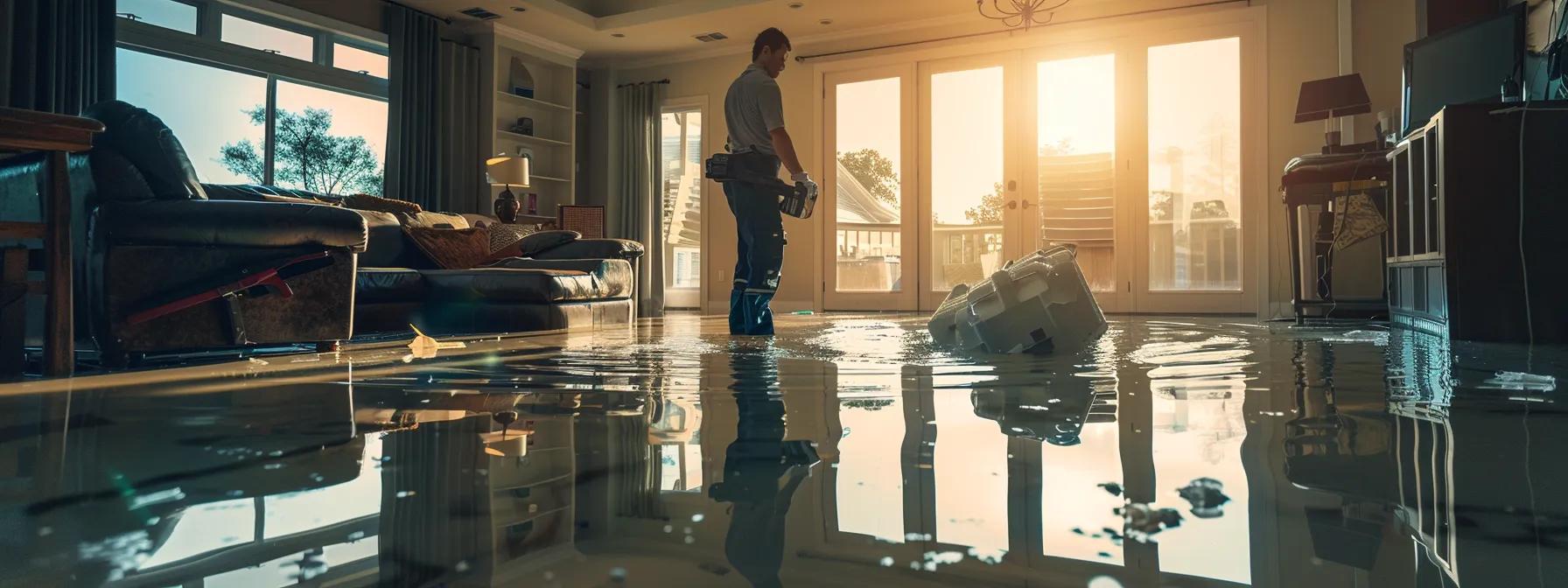
Diligent plumbing system checks are vital for preserving the longevity and efficiency of household appliances that depend on a consistent and reliable water supply. Appliances such as water heaters, washing machines, dishwashers, and refrigerators are heavily influenced by the quality and stability of the water that flows through them. Regular inspections ensure that any issues such as sediment buildup, corrosion, or hard water deposition are identified and resolved before they adversely affect appliance performance. For instance, a water heater that operates with excessive sediment may incur up to 15% decreased efficiency, leading to higher energy usage and reduced lifespan. Likewise, a washing machine frequently exposed to water leaks or pressure inconsistencies may experience early mechanical failures, resulting in premature replacement costs.
Ensure Your Water Heater Operates Efficiently for Longer
Water heaters are among the most critical appliances in a home and are significantly affected by the quality of water and regular maintenance. Routine checks help ensure that the heating element, thermostat, and pressure relief valves are operating efficiently. Removing sediment build-up through periodic flushing not only improves performance but also extends the unit’s operational life significantly. Studies have shown that regular maintenance on water heaters can reduce energy consumption by 10–15%, contributing to lower utility bills and less frequent replacement expenses. Efficient operation of the water heater is crucial for the overall balance of your plumbing system, as inappropriate temperatures can lead to additional risks like pipe corrosion and water pressure inconsistencies. By addressing minute issues before they escalate, homeowners not only protect their appliances but also improve the long-term reliability and energy efficiency of their entire plumbing network.
Protect Washing Machines and Dishwashers From Hard Water Issues
Hard water can have a detrimental impact on appliances such as washing machines and dishwashers by causing mineral deposits that lead to clogs, inefficient operation, and even premature mechanical failures. Plumbing system checks can reveal high mineral content in the water supply, prompting consideration for installing water softeners or filters. By mitigating hard water issues through routine assessments, appliances maintain their operational efficiency, minimizing downtime and repair costs. Furthermore, keeping these appliances free from scale buildup ensures that they operate at their optimum performance levels, thus reducing the frequency of breakdowns. Ensuring that water quality remains consistent and free from excessive minerals is a significant factor in promoting the longevity of critical household appliances. The combined benefits of energy savings, improved performance, and prolonged appliance life make regular inspections a key component of overall home maintenance.
Maintain Garbage Disposal Functionality and Avoid Replacements
Garbage disposals are highly sensitive to the consistency of waste and water flow. Regular plumbing checks include an assessment of the disposal unit to ensure that it is free from blockages, wear, or potential leaks. Inefficient disposal units may lead to unexpected failures which require a complete replacement—a costly process that can be avoided through periodic professional maintenance. Routine cleaning and functionality tests help ensure that couplings, seals, and internal components are in prime condition. Maintaining this unit not only supports the overall plumbing system but also avoids the inconvenience and expense associated with sudden appliance failure. A well-maintained garbage disposal contributes to smoother kitchen operations by preventing clogs and ensuring continuous, efficient performance.
Verify Water Softener Performance to Protect Plumbing
A properly functioning water softener is key to preventing the buildup of minerals that contribute to the degradation of not only pipes but also appliances. During plumbing system checks, technicians evaluate the performance of water softeners by testing water hardness levels and ensuring that the regeneration cycle operates as expected. In areas with hard water, the periodic calibration and maintenance of a water softener become even more critical. This proactive approach prevents scaling on internal surfaces of pipes, fixtures, and appliances, which in turn helps to maintain their efficiency and extend their life. With optimized water quality, the overall longevity of appliances such as water heaters, dishwashers, and washing machines improves, resulting in fewer breakdowns and reduced repair costs over time.
Identify Issues Impacting Ice Makers and Refrigerator Water Lines
Modern refrigerators are equipped with built-in water dispensers and ice makers, which rely on a steady, clean water supply to function efficiently. Regular inspections often cover all connections to the refrigerator to ensure there are no leaks or clogs in the water lines. Even minor obstructions can affect ice production and the temperature of the dispensed water, leading to reduced appliance performance and potential damage over time. Professional plumbing checks can identify issues such as low water pressure, sediment buildup, or improper sealing at connection points, all of which affect operating efficiency. By promptly addressing these issues, homeowners can avoid costly repairs or replacements while ensuring that both the ice maker and water dispenser operate reliably and efficiently.
Key Takeaways: – Regular checks on appliances like water heaters and washing machines prevent efficiency losses and extend lifespan. – Maintenance of water softeners and garbage disposals ensures smooth appliance operation and protects against mineral deposits. – Timely evaluations of refrigeration water lines prevent minor issues from developing into appliance failures. – Consistent appliance care through plumbing checks results in significant energy and repair cost savings.
The Financial Wisdom of Scheduling Professional Plumbing Assessments
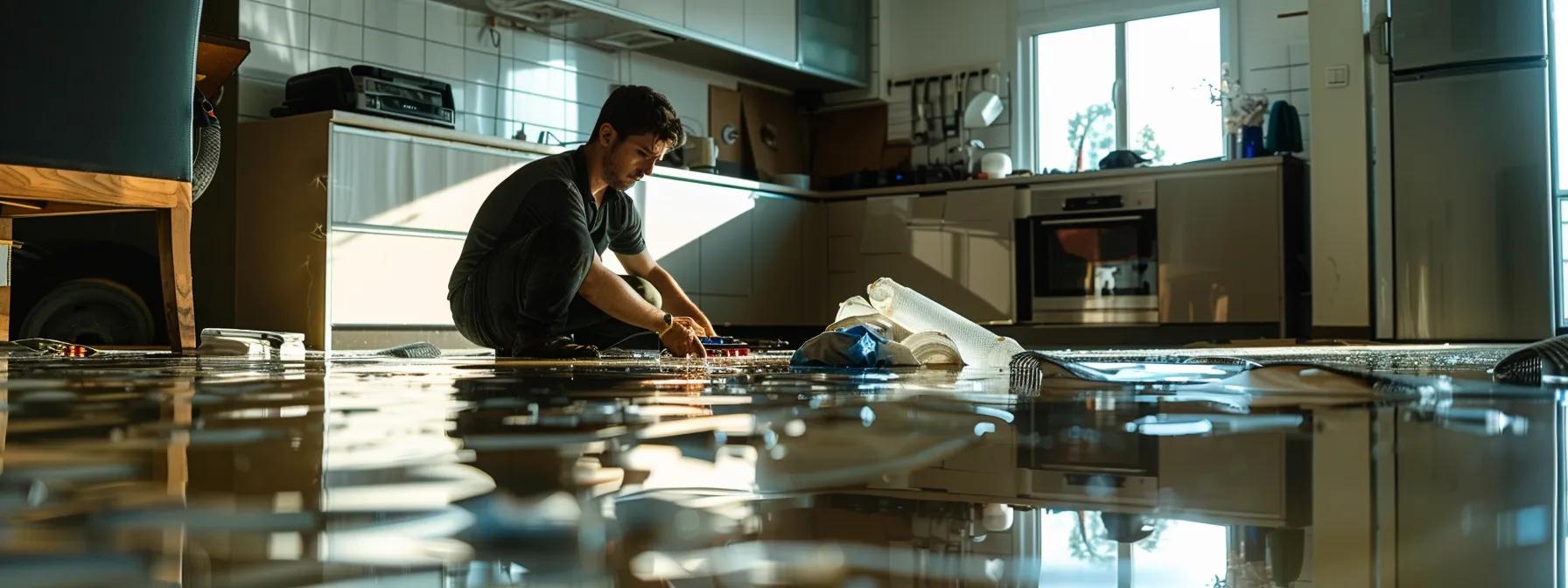
Scheduling professional plumbing assessments is an investment in the long-term health of your home and the reliability of its critical systems. These evaluations, conducted by certified plumbers using state-of-the-art diagnostic tools, help identify potential risks and inefficiencies that may not be visible during a casual inspection. Regular assessments can also uncover opportunities for minor improvements that yield major financial savings over time. For instance, identifying a small leak or a developing blockage early can prevent extensive water damage, preserve the condition of your property, and ultimately lower repair costs. Professional evaluations come with a detailed report that not only documents the current state of your plumbing but also provides actionable recommendations for upgrades, water conservation, and compliance with local building codes.
One of the significant financial benefits is the ability to preemptively budget for necessary repairs instead of facing a sudden emergency repair callout. By addressing small issues during scheduled assessments, homeowners avoid the premium fees charged for emergency service calls, which are frequently inflated due to after-hours work and urgent demand. Homeowners are also advised to integrate routine assessments into their annual maintenance schedule, thereby ensuring a systematic check of all plumbing components—from pipes and fixtures to water heaters and sump pumps. This disciplined approach provides financial predictability and helps in negotiating better insurance premiums, as insurance providers often favor homes that maintain regular professional inspections.
Additionally, professional assessments add value to your property by creating a documented maintenance history, which is advantageous during resale. Prospective buyers find assurance in knowing that the plumbing has been maintained to high standards, potentially increasing the property’s resale value. The comprehensive assessment covers not only visible components but also critical hidden areas such as behind walls and under floors, where issues could silently deteriorate the integrity of your infrastructure. The cost savings achieved over time through preventative maintenance can be substantial, often outweighing the initial investment in routine plumbing assessments.
Avert the High Price of Mold Remediation After Water Damage
One of the most significant long-term risks of unchecked plumbing issues is the development of mold following water damage. When water leaks are not identified and repaired promptly, they create persistent moisture that encourages mold growth—a problem that can affect both human health and property value. Professional plumbing assessments include detailed indoor inspections to detect early signs of moisture accumulation and mold spores. Preventing the onset of mold is critical because mold remediation is both costly and time-consuming, often involving extensive cleaning, replacement of building materials, and sometimes even structural repairs. With regular evaluations, potential mold growth can be halted before it spreads, leaving homeowners with a much lower financial burden and a safer living environment. This preemptive care ultimately links to other benefits, such as improved indoor air quality and reduced health risks among occupants.
Protect Your Landscape From Undetected Underground Leaks
Underground leaks may not be visible on the surface but have the potential to cause extensive damage to your home’s foundation and surrounding landscape. Regular professional plumbing assessments extend beyond the indoor systems, including evaluations of underground water lines and drainage systems. Early detection of underground leaks prevents soil erosion, water pooling, and damage to landscaping that can significantly reduce the aesthetic and monetary value of your property. Homeowners who invest in these comprehensive inspections enjoy peace of mind knowing that potential issues around exterior foundations and driveways are identified before they escalate into expensive repair projects. These assessments integrate advanced leak detection methods that can pinpoint leakage in pipes running under concrete or soil, ensuring that any necessary repairs are handled quickly and cost-effectively.
Increase Your Property’s Resale Value With Maintenance Records
Maintaining a detailed record of routine plumbing inspections and subsequent repairs provides compelling evidence of responsible home maintenance. Prospective buyers and real estate professionals alike are more impressed by a well-documented history of preventive care, knowing that the plumbing system has been kept in top condition. This record not only contributes to a higher resale value for your property but also establishes trust and reliability, reducing buyer concerns about hidden defects or future repair costs. Professional documentation from certified inspections can serve as a valuable piece of the home’s overall maintenance portfolio, thereby enhancing its appeal in the competitive real estate market. Over time, a consistent record of plumbing evaluations and repairs becomes a significant asset that justifies a higher selling price and smoother negotiations during property transactions.
Understand What a Comprehensive Plumbing Check Covers
A comprehensive plumbing check isn’t merely a visual inspection of accessible pipes; it encompasses a range of diagnostic tests and evaluations designed to assess every aspect of your plumbing system. These checks include water pressure tests, thermal imaging to spot temperature irregularities that indicate leaks, and moisture measurements to detect areas prone to water accumulation. The evaluation also covers fixture integrity, pipe corrosion levels, appliance connections, and even the efficiency of water softeners. Each of these components is critical for ensuring a healthy water supply, preventing water damage, and optimizing energy usage. A complete report from the assessment gives detailed insights into the system’s performance and outlines prioritized recommendations for both immediate repairs and long-term improvements. This level of detailed scrutiny is essential for homeowners who wish to maintain a safe, efficient, and high-value property.
Plan for Future Plumbing Upgrades to Maximize Savings
Professional assessments not only address current issues but also help homeowners plan for future updates and upgrades. As technology and building codes evolve, there may be opportunities to modernize your plumbing system to take advantage of water conservation features, better insulation, and more efficient fixtures. Upgrading during scheduled maintenance periods can often be coordinated with lower-cost financing or discounts from service providers who value long-term relationships. This forward-looking approach ensures that you remain ahead of potential issues and are able to make informed decisions that protect your investment. Strategic planning for future upgrades also means that you can spread the cost over time and avoid the shock of major emergency repairs, positioning you to take advantage of energy savings and improved home resale values.
Key Takeaways: – Professional plumbing assessments provide a comprehensive evaluation that helps budget for repairs. – Regular inspections prevent mold, protect underground systems, and boost property resale value. – Detailed maintenance records and forward planning can lead to long-term cost savings and upgraded systems. – A complete plumbing check covers gas lines, water pressure, and all hidden components for a thorough evaluation.
| Component | Key Function | Benefit | Example |
|---|---|---|---|
| Water Heater | Provides hot water | Improved energy efficiency | Flushing to prevent sediment buildup |
| Pipes and Fixtures | Distribute water throughout home | Prevents leaks and corrosion | Early detection of rust or wear |
| Sump Pump | Prevents basement flooding | Reduces flooding and water damage | Regular battery and function tests |
| Drain Lines | Facilitate water drainage | Avoids clogs and backups | Use of plumbing cameras for blockage check |
| Water Softener | Reduces mineral content | Prevents hard water related damages | Scheduled regeneration cycle testing |
Before and after each major section, homeowners benefit from visual data and maintenance reports similar to the table above, which outlines key components of the plumbing system. Such comprehensive data supports repair decisions and ensures that every piece of the system is functioning optimally.
Key Takeaways: – A summary table can provide a clear snapshot of your plumbing system’s health. – Data-driven inspections support proactive repair and maintenance decisions. – Visual tools like thermal imaging enhance the precision and reliability of inspections. – Detailed records improve maintenance planning and communication with service providers.
Frequently Asked Questions
Q: How often should plumbing inspections be scheduled? A: Homeowners should schedule professional plumbing inspections at least once a year. In addition, if you reside in an area prone to extreme weather or have an older home, consider having more frequent evaluations. Regular inspections help identify minor issues, optimize appliance performance, and prevent costly water damage.
Q: Will regular plumbing inspections lower my water bills? A: Yes. Regular inspections can detect hidden leaks and inefficiencies in your plumbing system that cause water wastage. By addressing these issues early, you can save significantly on your water bills and avoid the escalating costs associated with undetected leaks.
Q: How do plumbing checks affect my home insurance premiums? A: Insurance companies often lower premiums for homes with documented preventive maintenance programs. Regular plumbing inspections demonstrate proactive care, reducing the risk of costly damage, which may translate to lower insurance premiums over time.
Q: What modern tools do professionals use during an inspection? A: Professionals use various state-of-the-art diagnostic tools during plumbing inspections, such as moisture meters, thermal imaging cameras, and acoustic leak detectors. These tools help identify micro-leaks, temperature anomalies, and other critical issues that are not visible to the naked eye.
Q: Can regular plumbing checks improve household appliance efficiency? A: Absolutely. Proper maintenance of the plumbing system directly impacts the efficiency and longevity of household appliances, such as water heaters, washing machines, and dishwashers. Regular checks help prevent issues like scale buildup and water pressure fluctuations which can lead to appliance inefficiencies.
Q: What should I do if an inspection reveals a minor leak? A: If an inspection uncovers a minor leak, it is advisable to have it repaired promptly by a qualified plumber. Early intervention can prevent the leak from worsening, avoiding water damage to your home and additional repair costs down the road.
Final Thoughts
Regular plumbing inspections are not just a precaution—they are a strategic investment in the long-term health of your home. By identifying even minor issues early, these routine evaluations help conserve water, reduce energy consumption, and prevent costly repairs. Homeowners who integrate consistent plumbing checks into their annual maintenance strategy ultimately benefit from increased system efficiency, improved property value, and enhanced financial predictability. Schedule your next professional plumbing assessment today to safeguard your home and secure long-term savings.



